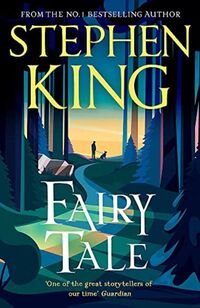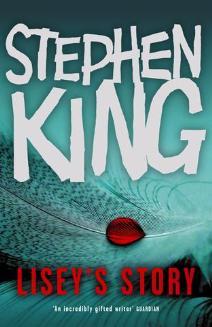The opening dedication of Stephen King’s latest novel suggests where his mind was at: “Thinking of REH, ERB, and, of course, HPL.”, the initials calling to mind authors of early fantasy and cosmic horror. And that’s what Fairy Tale (2022) is: a mashup of these genres looking to halcyon days of early adventure.
Its narrator is Charlie, a little older now, but telling of events from 2013 when he was seventeen. He’s an amiable enough narrator, slightly precocious, but an ultimately unconvincing teen who seems to have lived through King’s 1950s childhood instead of his own. This lazily, and repetitively, explained away due to his father’s love for Turner Classic Movies.
After Mr Bowditch, Charlie’s mysterious neighbour, has an accident, Charlie befriends the old man and, when in hospital, looks after his equally elderly (in dog years) German Shepherd, Radar. This much is blurb, and while it runs for around two hundred pages, it’s a great set-up; a small web of characters whose lives overlap; a strange old man with a secret; and the mystery of what’s chittering in Bowditch’s shed.
And then, in revealing that Bowditch has a portal to another world (not a spoiler), King ruins the book by throwing all goodwill away and taking us into a bland fantasy soup that could have been cribbed from YA WattPad. For four hundred more pages (!) the story just continues, the narrative drifting from scene to scene, from one boring Bombadil to another. All that foundation work simply pushed aside. In the final third, it does slightly get a grip of itself – slightly! – but the damage is done.
With references to a grey plague that has afflicted his fantasy world and an empty city, Covid isn’t far from our thoughts, and maybe even its ‘beshatted’ thrones, indicative of office, allude to a malign leader overseeing such dark times. But King also crams in references to books and films (explicitly) that make you wish you were reading or watching them instead.
As it’s Fairy Tale (not Scary Tale) King keeps it simple and ultimately uplifting, but it reads like two books stitched together and lightly smoothed to a flabby whole, all told by a first person narrator that’s dead behind the I’s.

